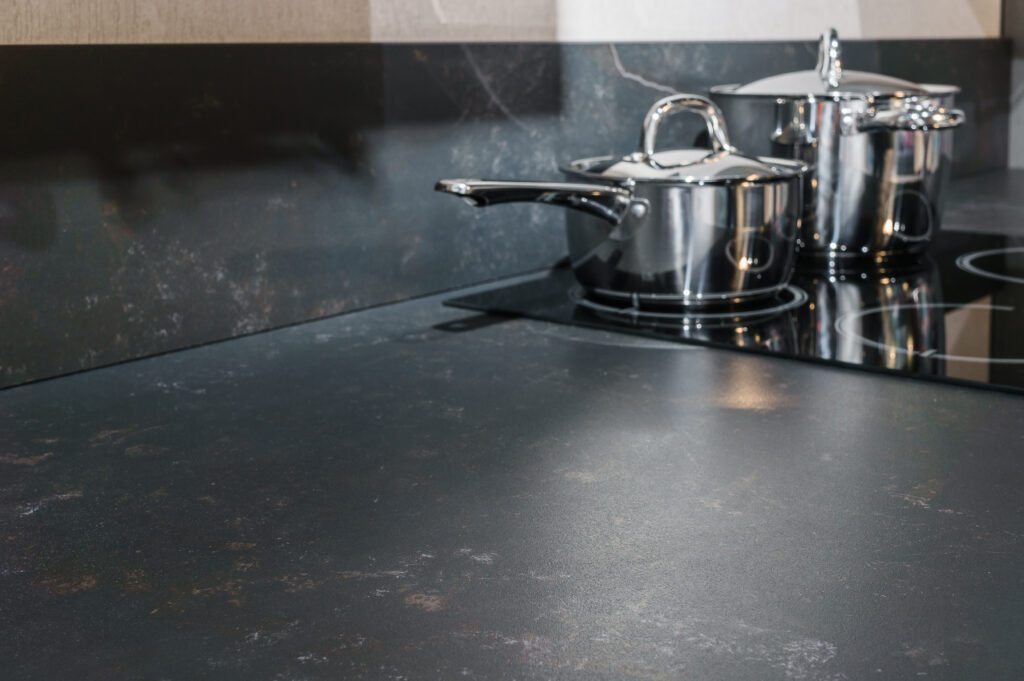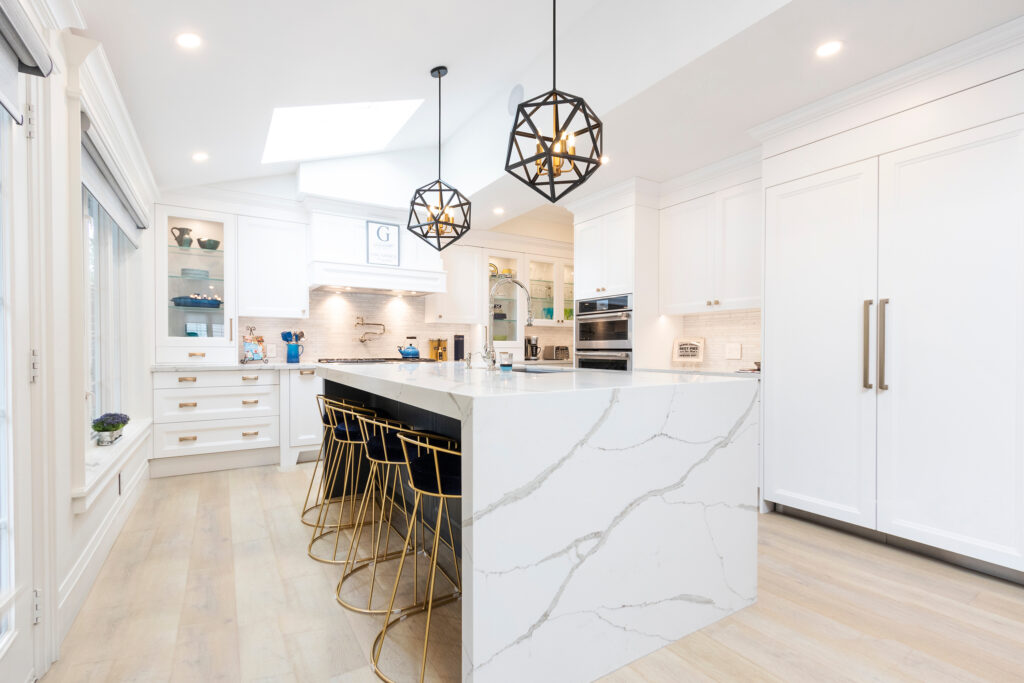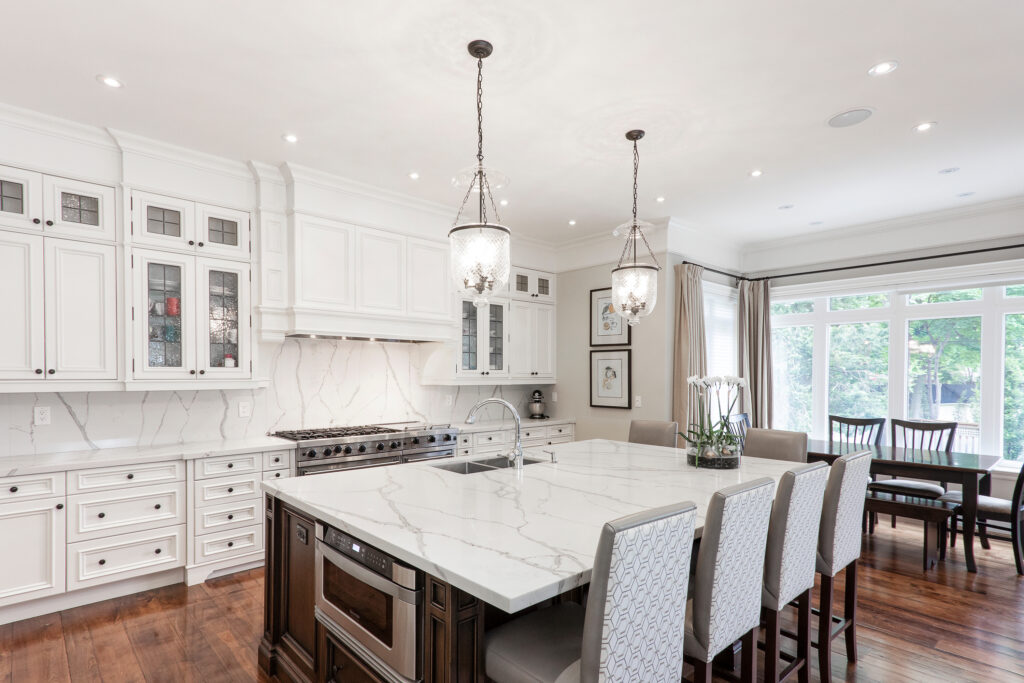Choosing new countertops can be exciting and overwhelming. We know how important it is to find the perfect surface for your kitchen or bathroom. That’s why visiting a countertop store is a great place to start.
At a countertop store, you can see and touch different materials in person to help you decide what’s best for your home. Many stores offer custom countertops to fit your exact space and style. You’ll also find knowledgeable staff who can answer questions about durability, maintenance, and installation.
We recommend exploring various options like granite, quartz, marble, and more. Quality countertops can really transform a room and add value to your home. With so many choices available, you’re sure to find something that matches your vision and budget at a local countertop store.
Exploring Countertop Options

Countertop choices can make a big impact on a kitchen’s look and function. Let’s look at some popular materials and their key features.
Granite Countertops
Granite is a natural stone that’s loved for its beauty and durability. Each piece is unique, with patterns and colors that vary. Granite resists heat and scratches well. It’s also easy to clean.
Granite needs sealing every year or two to prevent stains. It can chip if hit hard. The cost ranges from moderate to high, depending on the type chosen.
We find that granite works in many kitchen styles. It can be polished for a shiny look or honed for a matte finish. Popular colors include black, white, and beige.
Quartz Countertops
Quartz countertops are engineered stone made from quartz particles and resin. They offer a wide range of colors and patterns. Some even mimic natural stone.
These countertops are very durable and resist stains and scratches. They don’t need sealing like granite does. Quartz is non-porous, which makes it more germ-resistant.
The downsides? Quartz can be pricey. It’s also not as heat-resistant as granite. Direct sunlight may cause some quartz counters to fade over time.
Marble Countertops
Marble is prized for its elegant, luxurious look. It comes in many colors, often with beautiful veining. No two pieces are exactly alike.
This stone is softer than granite or quartz. It can scratch and stain more easily. Marble needs regular sealing to protect it.
Marble works well for baking areas because it stays cool. But acidic foods can etch its surface. It’s often used in high-end kitchens and for bathroom vanities.
Butcher Block Countertops
Butcher block counters are made from strips of wood glued together. They bring warmth and a natural feel to kitchens. Common woods include maple, oak, and walnut.
These counters are great for food prep and can be sanded if damaged. They’re easier on knives than stone. Wood is also quieter than hard surfaces.
Butcher block needs regular oiling to stay water-resistant. It can dent and scratch, but many find this adds character. It’s not good near sinks without proper sealing.
Other Countertop Materials
Concrete counters offer a modern, industrial look. They can be colored and shaped in many ways. Concrete is strong but needs sealing to prevent stains.
Stainless steel is durable and heat-resistant. It’s great for commercial kitchens. At home, it suits modern designs but can look cold.
Solid surface counters, like Corian, are made from acrylic. They come in many colors and are easy to repair. But they can scratch and aren’t as heat-resistant as stone.
Laminate is budget-friendly and comes in countless designs. It’s not as durable as other options but works well in rental properties or for quick updates.
Maintaining Your Countertops

Keeping countertops in top shape requires regular care and attention. Proper maintenance helps countertops last longer and look great for years to come.
Routine Cleaning
We recommend wiping countertops daily with a soft cloth and mild soap. For tougher messes, use a non-abrasive cleaner made for your specific countertop material.
Avoid harsh chemicals or acidic cleaners. These can damage the surface over time.
Dry the countertop after cleaning to prevent water spots. Use a microfiber cloth for best results.
For natural stone like granite or marble, seal the surface yearly. This protects against stains and etching.
Preventing Damage
We suggest using cutting boards and trivets to protect countertops. Don’t cut directly on the surface or place hot items without protection.
Wipe up spills quickly, especially acidic substances like wine or citrus juice. These can etch or stain if left too long.
Be careful with heavy objects. Dropping them can chip or crack the countertop.
Avoid sitting or standing on countertops. This can cause cracks or separation from cabinets.
Repair and Restoration
Small scratches in some materials can be buffed out with fine-grit sandpaper. Always test in an inconspicuous spot first.
For deeper scratches or chips, we recommend calling a pro. They have special tools and fillers to fix damage.
Stains can often be removed with a poultice. Make a paste with baking soda and water, apply to the stain, and cover with plastic wrap. Leave for 24 hours, then rinse.
If DIY methods don’t work, contact a restoration specialist. They can refinish or reseal badly damaged countertops.
Regular maintenance keeps custom countertops looking new. With proper care, most countertops can last 10-20 years or more.




